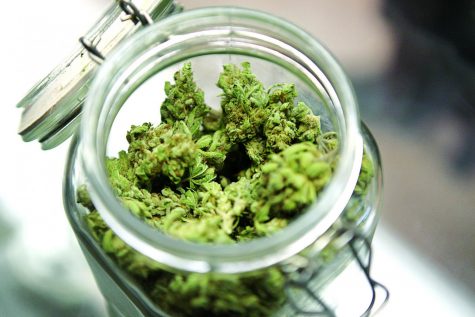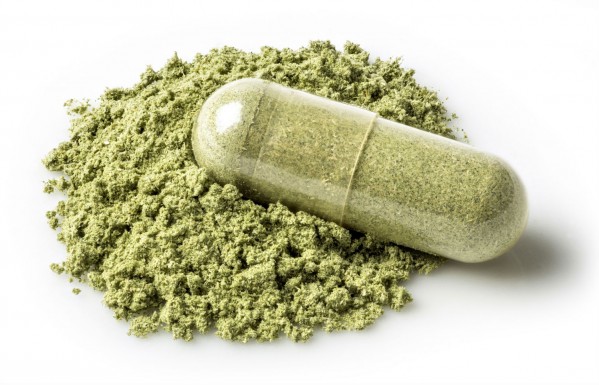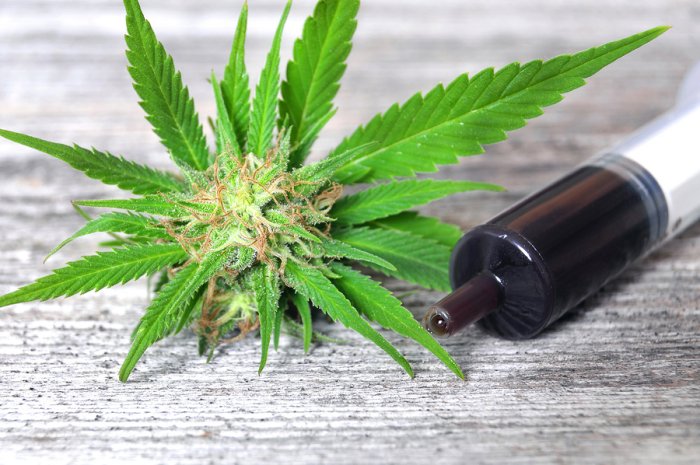The non-psychoactive cannabis compound: Why is CBD non-intoxicating?
CBD is an antagonist of CB1 receptors and so, you can expect to experience completely different effects from CBD-rich cannabis as opposed to THC-rich weed.
Cannabidiol, abbreviated as CBD, is one of the most widely researched (and talked about) cannabis compounds. As long as it contains 0.3 percent THC or less, it is legal for use throughout most of the United States.
Unlike THC (tetrahydrocannabinol), CBD is not psychoactive. This means that when you ingest the non-psychoactive cannabis compound CBD, you won’t feel high or “stoned.”
Understanding CB1 receptors
 Euphoria and cannabis are linked, but the feeling is not guaranteed.
Euphoria and cannabis are linked, but the feeling is not guaranteed.
It depends entirely on which strain you choose, with high-CBD, low-THC strains being much less psychoactive than high-THC, low-CBD strains. After all, CBD is non-psychoactive, whereas THC is.
When you experience a high from cannabis, it is because THC is binding with cannabinoid 1 receptors inside the brain, better known as CB1 receptors.
The non-psychoactive cannabis compound CBD, on the other hand, has a very poor binding analogy for CB1 receptors.
Even if you don’t realize it, you’ve got plenty of CB1 receptors inside your brain and central nervous system. Every single human being does and, believe it or not, so do dogs, cats, horses, and various other animal species.
An easy way to think about CB1 receptors is to envision a wall socket and an electrical plug. Just like a puzzle, the pieces fit in the right places. The same applies to THC and CB1 receptors.
Thanks to its specific shape, THC connects perfectly with CB1 receptors, activating them in the process. The same cannot be said for CBD, which is why you don’t get high from consuming this cannabis compound.
According to scientists, THC is an agonist of the CB1 receptor, meaning that it stimulates those receptors and produces the relaxing full-body high that cannabis is known for.
THC activates CB1 receptors
 The psychoactive THC compound is cannabis’ version of anandamide, which occurs naturally inside the human body.
The psychoactive THC compound is cannabis’ version of anandamide, which occurs naturally inside the human body.
Some people refer to anandamide as “the bliss molecule.”
An endocannabinoid that has the potential to activate CB1 receptors, anandamide is also found in chocolate.
If you consume chocolate and THC together, you can expect the high to stick around for a lot longer. Chances are, the high will also be more intense.
This molecule can increase food-associated pleasure and appetite, based on the results of animal studies. It has also been linked to the “runner’s high.”
Furthermore, anandamide is connected with pain, memory, and even motivation. Since THC mimics anandamide so closely, there’s no wonder why people experience an overwhelming sensation of joy when they consume the high-inducing THC compound.
Non-psychoactive cannabis compound CBD is an antagonist of CB1 receptors
 Conversely, CBD is an antagonist of CB1 receptors and so, you can expect to experience completely different effects from CBD-rich cannabis as opposed to THC-rich weed. This non-psychoactive compound has no direct impact on CB1 receptors. In fact, the non-psychoactive cannabis compound CBD restrains THC’s CB1-triggering abilities.
Conversely, CBD is an antagonist of CB1 receptors and so, you can expect to experience completely different effects from CBD-rich cannabis as opposed to THC-rich weed. This non-psychoactive compound has no direct impact on CB1 receptors. In fact, the non-psychoactive cannabis compound CBD restrains THC’s CB1-triggering abilities.
To put it simply, if you consume both cannabis compounds, CBD will suppress the direct stimulation of CB1 receptors caused by the psychoactive cannabis compound, THC.
“CBD opposes the action of THC at the CB1 receptor, thereby muting the psychoactive effects of THC,” writes co-founder of Project CBD, Martin Lee.
CBD boasts enormous potential as a medicinal treatment
 An incredible amount of pre-clinical research on the non-psychoactive cannabis compound CBD has demonstrated the chemical’s suitability for the treatment of many different medical illnesses, conditions and diseases.
An incredible amount of pre-clinical research on the non-psychoactive cannabis compound CBD has demonstrated the chemical’s suitability for the treatment of many different medical illnesses, conditions and diseases.
So much so, in fact, that the U.S. Government has sponsored a great deal of pre-clinical research that spotlights CBD’s anti-psychotic, anti-tumoral and anti-convulsive properties.
While research on the effects of the non-psychoactive cannabis compound CBD is ongoing, scientist collaborations with the International Cannabinoid Research Society (ICRS) have revealed at least 60 molecular pathways that the non-psychoactive cannabis compound CBD has a therapeutic influence on.










